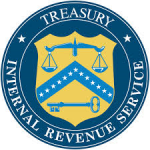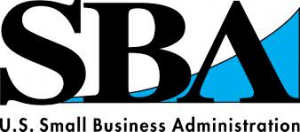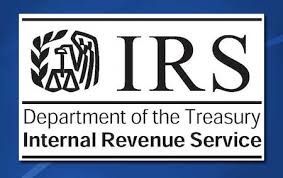7 Reasons Why You Shoul d (and Shouldn’t) File Your Own Taxes
d (and Shouldn’t) File Your Own Taxes
This article was printed back in 2013, but the same challenges and issues exist today with a few extras. April 18th is only 2 weeks away, so if you are undecided, and think you need some advice, give us a call at 619-589-8680. If you want to read this article in its original format, click here.
“Unless your income and filing status remain the same year after year, your tax situation is always changing. The question,“should I file my own taxes or hire a pro?” is a dilemma that should be revisited every year. As my hobbies and passions have grown over the years, I’ve needed more and more guidance to help file my income taxes. I eventually decided to build on to my accounting skills by taking two years of income tax classes to increase my knowledge.
You are probably in the same situation: As we get older, add more people to our lives and increase our business, we need to evaluate when/if we need tax advice.
WHEN IT’S BETTER TO FILE YOUR OWN TAXES: There are important factors to consider once you decide to file your own taxes. This is definitely not a decision you should make hastily. You can confidently file your own taxes if…
–You’re a numbers kind of person If you enjoy keeping track of all the numbers, transactions and receipts, then by all means you’re the best person for the job. You know the ins-and-outs of your situation the best and can accurately control everything.
–Your tax situation is simple or unchanged If you only have one job, don’t have any dependents and have no other investments or sources of income, you can easily file your taxes yourself. The IRS even offers free e-filing for taxpayers who have simple returns.
–You don’t own property or investments Once you acquire property, investments or retirement accounts, it can be difficult to stay up-to-date on everything. Each type comes with deductions and credits that can be very beneficial to your taxes. Having a professional to help in the case, is probably the best idea.
–You can understand tax laws If you can browse the IRS website, comprehend their tax jargon and stay up-to-date with changing tax laws, then go for it. Some of the forms and laws are simple and can be interpreted with a little research. [If you are not fluent in tax law and all the changes that have been affect returns, we strongly recommend you consult with a tax professional.]
WHEN IT’S BETTER TO HIRE A PROFESSIONAL: While I’m slightly partial to hiring a professional for help — being a tax consultant myself and the fact that I like having an expert in my corner — it’s really only necessary for certain people. Hire a CPA or tax professional if…
–You can’t get a handle on your money If doing the books and tracking the numbers just isn’t your forte, please hire someone to help. There is no reason to get yourself into trouble, or get in over your head. Hiring a tax preparer is like finding the right tool for the right job, the whole thing can be done correctly from the beginning and potentially save you a lot of money in the long run.
–You started a new business Starting a new business or hobby venture takes expert knowledge. You wouldn’t jump off a diving board without swimming lessons, so you shouldn’t try to do your business taxes without some guidance.
Tax experts can help you find lots of deductions and prevent you from getting into trouble. Those savings and peace of mind alone can pay for themselves.
–You got married, divorced or had a child If you got married/divorced, had another child or lost a spouse, you might need help finding the best filing status for that year. Some of them are easy but others, (like being a widow) have time-sensitive dates.
Also, as your children get older, tax credits and deductions might expire depending on their ages. If your child goes to college full-time, you can still claim them — and any education expenses — until they’re 24. Determining these situations accurately takes someone who is knowledgeable.
Benefits to doing your own taxes:
-It’s less expensive
-Takes less time
-You know all the details
Benefits to hiring someone:
-They stay updated on changing tax laws
-You get expert and experienced advice
-An extra set of eyes to catch mistakes
-They become your advocate
-Find little known tax deductions
-They give tax guidance throughout the year
The Bottom Line In the end, it’s completely up to you and what you’re most comfortable with. You can always find an expert to help and then phase them out if you don’t need the advice. But in the event you’re not able to keep up, having a trustworthy tax professional in your corner can make all the difference.”
If you want to read it in its original format, in the Huffington Post, click here.
Source: http://www.huffingtonpost.com/carrie-smith/tax-advice_b_2638785.html
A version of this post originally appeared onCareful Cents.
ABOUT US-TAXLAWS
We do more than just tax preparation. We are your best source for professional tax preparation and/or financial consulting services. We give clients a total solution that can include:
Personal Tax Preparation Business Tax Preparation Partnership Tax Preparation
Corporate Tax Preparation Incorporation-Choice of Entity Business Support Services
Corporate Compliance Audit Representation Retirement Tax Planning Wills & Trusts, Estate Planning Bookkeeping Payroll

 You are required to issue a 1099 to anyone you pay $600 or more in the course of your trade or business who is not incorporated.
You are required to issue a 1099 to anyone you pay $600 or more in the course of your trade or business who is not incorporated. Continuing Education for the entrepreneur, start-up and small business owner.
Continuing Education for the entrepreneur, start-up and small business owner.  Have you set up your appointment to have taxes done?
Have you set up your appointment to have taxes done? In 2015, Various Tax Benefits Increase Due to Inflation Adjustments
In 2015, Various Tax Benefits Increase Due to Inflation Adjustments Affordable Care Act has provisions for individuals who need to purchase Health Care.
Affordable Care Act has provisions for individuals who need to purchase Health Care. Tips and Techniques to Improve Your Restaurant and Increase Your Profits
Tips and Techniques to Improve Your Restaurant and Increase Your Profits Entity creation has a cost!
Entity creation has a cost! What would happen if the IRS re-classified your business as a hobby?
What would happen if the IRS re-classified your business as a hobby?

 Retirement is one of the big questions Boomers are facing and keep these thoughts in mind when planning.
Retirement is one of the big questions Boomers are facing and keep these thoughts in mind when planning.